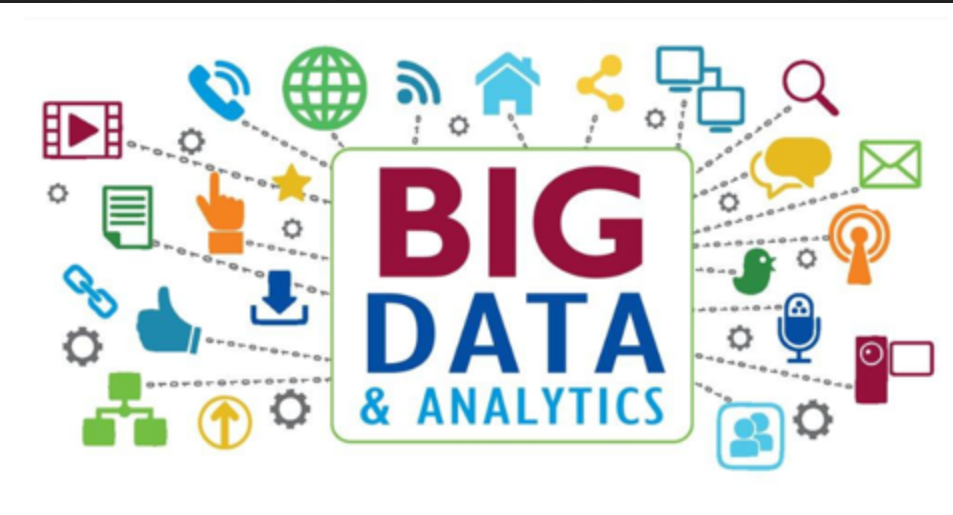businesses have access to an unprecedented amount of data. This vast volume of information can be overwhelming to manage and analyze effectively. However, with the right tools and techniques, organizations can harness the power of big data analytics to gain valuable insights and make better business decisions. This article will explore how big data analytics can help businesses improve decision-making processes and achieve competitive advantages in the market.
What is Big Data Analytics?
Before delving into the benefits of big data analytics, let’s first define what it is. Big data analytics refers to the process of examining large and complex datasets to uncover patterns, trends, and correlations. It involves using advanced analytical techniques, such as machine learning and artificial intelligence, to extract meaningful insights from data that would be otherwise challenging to interpret manually.
How Big Data Analytics Can Help You Make Better Business Decisions

Big data analytics offers several advantages that can significantly enhance the decision-making capabilities of businesses. Here are some ways in which it can help:
1. Identifying Market Trends and Customer Preferences
One of the key benefits of big data analytics is its ability to uncover valuable insights into market trends and customer preferences. By analyzing vast amounts of data from various sources, businesses can identify patterns and understand what drives customer behavior. This information can then be used to develop targeted marketing strategies, optimize product offerings, and tailor customer experiences to meet their expectations.
2. Improving Operational Efficiency
Big data analytics can also help businesses optimize their operational processes and improve overall efficiency. By analyzing data from different operational areas, such as supply chain management and production processes, organizations can identify bottlenecks, streamline workflows, and reduce costs. For example, predictive analytics can be used to forecast demand and optimize inventory levels, ensuring that businesses have the right products available at the right time, thus minimizing inventory holding costs and stockouts.
3. Enhancing Risk Management
Effective risk management is crucial for businesses to thrive in today’s dynamic and uncertain environment. Big data analytics enables organizations to identify and mitigate potential risks more effectively. By analyzing large datasets, businesses can detect early warning signs, identify emerging risks, and develop proactive strategies to minimize their impact. For instance, insurance companies can use predictive analytics to assess customer risk profiles accurately and offer personalized insurance plans.
4. Empowering Data-Driven Decision-Making
Informed decision-making is the cornerstone of successful businesses. Big data analytics empowers organizations to make data-driven decisions based on facts and insights rather than intuition or guesswork. By leveraging data analytics tools and techniques, businesses can eliminate biases and subjectivity, ensuring that decisions are based on objective information. This, in turn, leads to more accurate predictions, reduced decision-making time, and improved outcomes.
5. Gaining Competitive Advantage
In today’s highly competitive business landscape, gaining a competitive advantage is essential for sustainable success. Big data analytics provides organizations with a powerful tool to gain insights into their market, competitors, and customers. By leveraging these insights, businesses can identify new opportunities, develop innovative products and services, and differentiate themselves from the competition. This competitive advantage allows organizations to stay ahead in the market and drive growth.
6. Enhancing Customer Experience
Customer experience has become a crucial differentiator for businesses across industries. Big data analytics enables organizations to gain a deep understanding of their customers, their preferences, and their pain points. By leveraging these insights, businesses can personalize their offerings, provide relevant recommendations, and deliver exceptional customer experiences. This not only enhances customer satisfaction but also increases customer loyalty and advocacy, leading to long-term business success.
FAQs (Frequently Asked Questions)
Q1: What types of data can be analyzed using big data analytics?
A1: Big data analytics can analyze various types of data, including structured data (e.g., sales transactions, customer demographics) and unstructured data (e.g., social media posts, customer reviews, sensor data). It can also process data from multiple sources, such as enterprise databases, web data, and IoT devices.
Q2: Do businesses need specialized tools to implement big data analytics?
A2: Yes, implementing big data analytics requires specialized tools and technologies to handle the volume, variety, and velocity of data. These tools include data management platforms, data visualization software, predictive analytics tools, and machine learning algorithms.
Q3: Is big data analytics only for large enterprises?
A3: No, big data analytics is not limited to large enterprises. Businesses of all sizes can benefit from analyzing their data to gain valuable insights. The scalability and affordability of cloud-based analytics platforms have made big data analytics more accessible to small and medium-sized businesses.
Q4: How can businesses ensure data privacy and security when implementing big data analytics?
A4: Data privacy and security are critical considerations when implementing big data analytics. Businesses should implement robust data protection measures, including encryption, access controls, and regular security audits. Compliance with data protection regulations, such as GDPR or CCPA, is also essential to maintain customer trust.
Q5: What skills are required to perform big data analytics?
A5: Big data analytics requires a combination of technical and analytical skills. Proficiency in programming languages (such as Python or R), data visualization, statistics, and machine learning algorithms is essential. Additionally, domain knowledge and critical thinking skills are valuable for interpreting the results and translating them into actionable insights.
Q6: Can big data analytics help businesses improve their decision-making in real-time?
A6: Yes, big data analytics can provide real-time insights that enable businesses to make timely decisions. By leveraging technologies like stream processing and in-memory analytics, organizations can analyze data as it is generated, allowing for immediate responses and proactive decision-making.